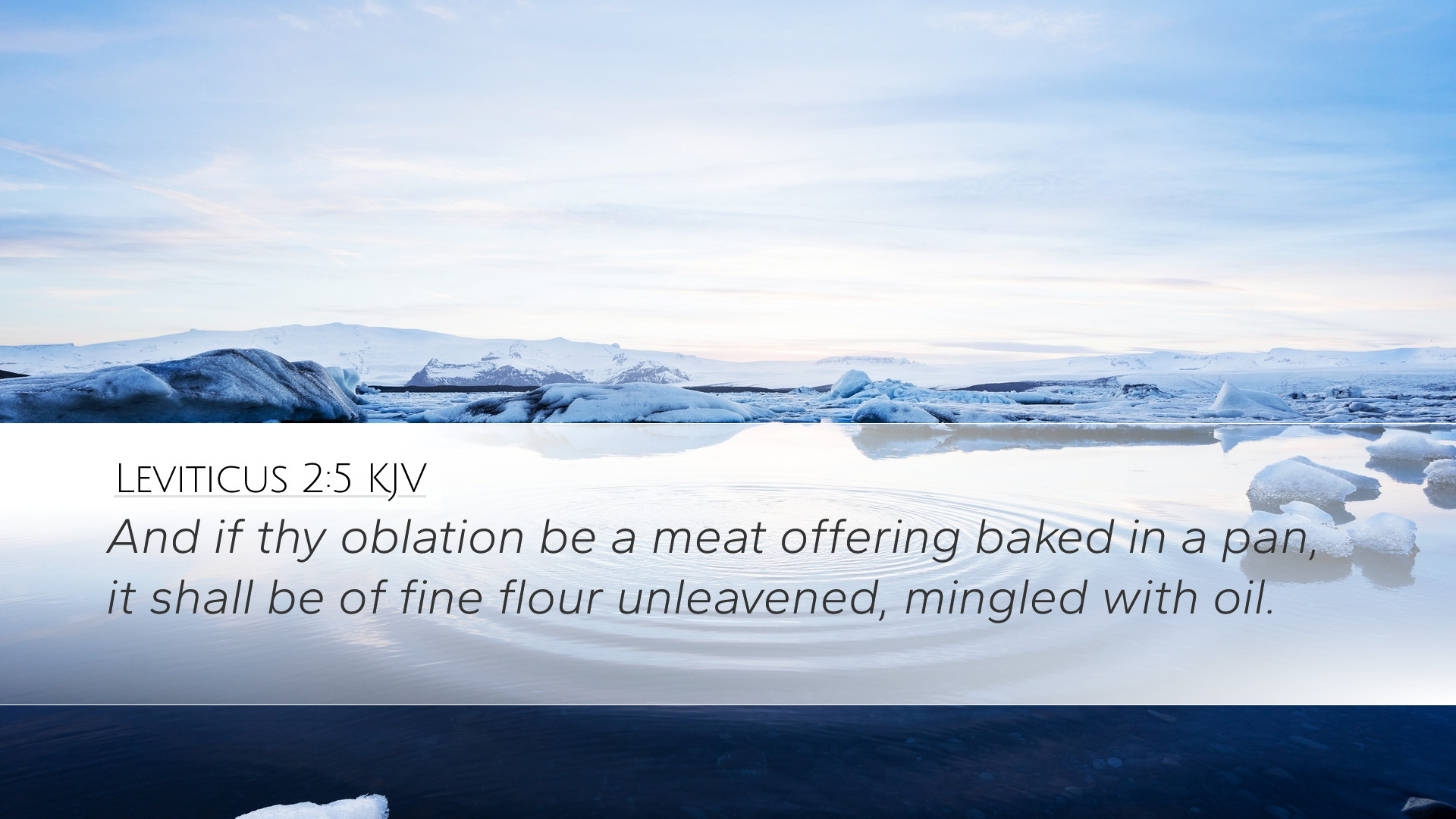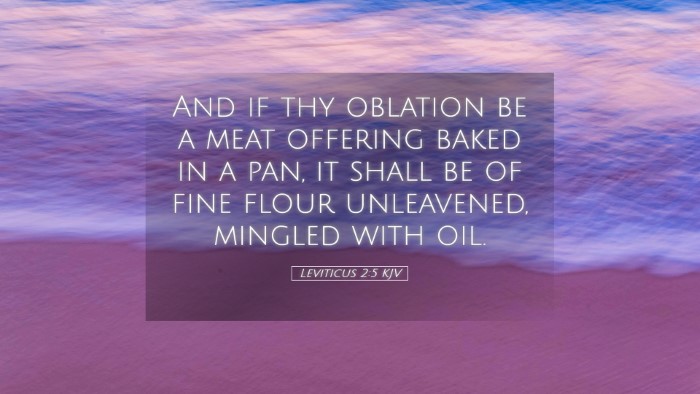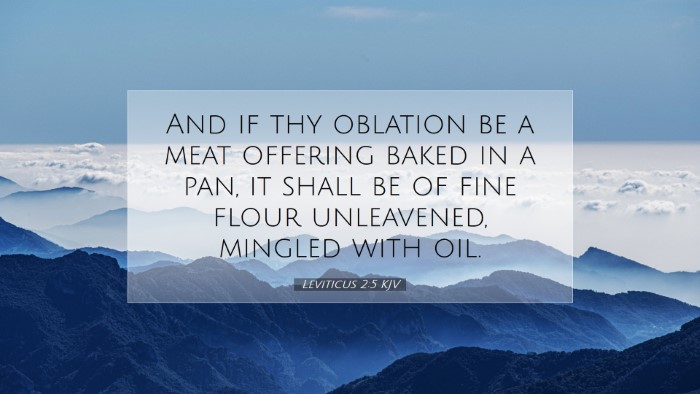Commentary on Leviticus 2:5
Bible Verse: Leviticus 2:5 - "And if thy oblation be a meat offering baked in the oven, it shall be unleavened cakes of fine flour mingled with oil, or unleavened wafers anointed with oil."
Introduction
Leviticus 2:5 is a significant verse in the Book of Leviticus, which provides instructions regarding various offerings, particularly the grain or meat offerings. Understanding this verse and its context is crucial for pastors, theologians, and students of the Bible as it lays the groundwork for the theology of offerings in the Old Testament.
Contextual Background
The Book of Leviticus serves as a manual for the priests and the people of Israel, addressing the protocols for worship and the sacrificial system. In this section, the grain offering is detailed, indicating how it is to be prepared and presented before the Lord.
Exegesis of the Verse
In examining Leviticus 2:5, we identify several key components:
- Meat Offering: The term "meat offering" can be misleading from a modern perspective. It primarily refers to grain offerings, highlighting that God is not merely interested in animal sacrifices but also values the fruits of the earth and the labor of the people.
- Baked in the Oven: The requirement for the offering to be baked signifies a process of transformation and preparation, echoing a sense of dedication and care in the act of offering.
- Unleavened Cakes: The mention of unleavened bread signifies purity and separation from sin, as leaven is often associated with corruption and decay in biblical symbolism.
- Mingled with Oil: The inclusion of oil represents the Holy Spirit in biblical terms—suggesting that offerings should be infused with spiritual vitality as well as physical substance.
Theological Implications
Holiness and Purity
John Gill emphasizes the significance of unleavened offerings, declaring that they signify the absence of sin and the need for holiness. This resonates with the overarching theme of Leviticus, which calls for a people set apart for God’s purpose.
Christological Foreshadowing
Albert Barnes and Adam Clarke both observe that the unleavened cakes can be seen as a foreshadowing of Christ Himself, who is without sin—a perfect sacrifice who embodies purity. This perspective deepens the understanding of the Old Testament sacrificial system as it points to New Testament truths.
The Role of the Believer
Pastors and students of the Bible may draw important lessons about offering ourselves to God. Just as these offerings were to be prepared with care and purity, believers today are called to present themselves as living sacrifices, holy and acceptable to God (Romans 12:1).
Practical Application for Today's Believers
The principles found in Leviticus 2:5 can be applied in various ways for contemporary Christian practice:
- Dedication of Efforts: Whether in ministry, work, or personal endeavors, Christians are encouraged to commit their best efforts to God, offering what they do as a service dedicated to His glory.
- Purity of Intent: The absence of leaven encourages believers to examine their hearts and motives, ensuring that they are pure and focused on honoring God above all.
- Inclusion of the Spirit: Just as oil was mingled with the offerings, believers should integrate the guidance and empowerment of the Holy Spirit in all aspects of life.
Conclusion
Leviticus 2:5 encapsulates essential truths concerning God's expectations for offerings and the symbolic significance behind them. By offering only what is pure and mixing it with spiritual vitality, the ancient Israelites reflected their relationship with God—a relationship characterized by holiness, dedication, and love. For modern believers, this passage serves as a reminder to offer their lives—marked by purity and empowered by the Holy Spirit—in dedication to the ultimate sacrifice Christ has made.


